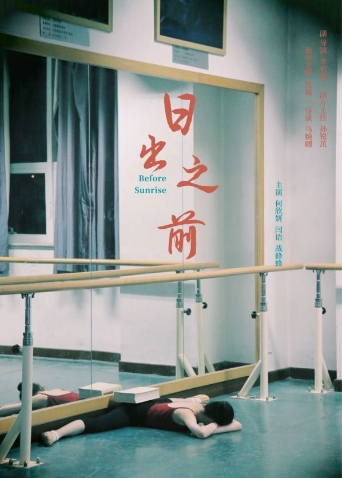二战结束后拍摄,毛片毛片但拍成之后被禁10年,毛片毛片终于在近年得以重见天日。捷克影史上 最重要的反映大屠杀的反战电影之一,导演阿尔佛雷德·雷铎(Alfred Radok)生长于战 争年代,他深受战争之苦,家庭因战争而破散,他自己也蹲过集中营。在二战结束之后拍 摄了这部反映纳粹对犹太人大屠杀的巨作,故事分三条线索,主线是布拉格一所医院里一 对医生夫妇因为反犹太政策而祸从天降,被送往集中营的故事。剧情片与纪录片相结合, 给观众最真切最贴近的战争体验。
二战结束后拍摄,毛片毛片但拍成之后被禁10年,毛片毛片终于在近年得以重见天日。捷克影史上 最重要的反映大屠杀的反战电影之一,导演阿尔佛雷德·雷铎(Alfred Radok)生长于战 争年代,他深受战争之苦,家庭因战争而破散,他自己也蹲过集中营。在二战结束之后拍 摄了这部反映纳粹对犹太人大屠杀的巨作,故事分三条线索,主线是布拉格一所医院里一 对医生夫妇因为反犹太政策而祸从天降,被送往集中营的故事。剧情片与纪录片相结合, 给观众最真切最贴近的战争体验。
回复 :6年前,富二代马小顺(邓超 饰)来到法国巴黎留学,这座以浪漫著称的城市,俨然成了花花公子马小顺寻欢作乐的天堂。某天他和朋友胡打乱闹跑到精英精子库捐精,他的种子阴差阳错进入了绝望的中年女诗人艾玛(珍·玛琪 Jane March 饰)的体内。原本渴望生出一个金发碧眼可爱小孩的艾玛,最终却生了一个黄皮肤黑头发的小女孩。艾玛一怒之下将精子库告上法庭,造成这一切的马小顺也被勒令遣返回国。这一变故不仅让小顺面临遣返,同时即将走入婚礼殿堂的女友艾米(Clémence saint-preux 饰)也决然离开。为了继续留在法国,小顺必须想法让艾玛的小孩承认他亲生父亲的身份。为此他展开了一连串的留守大作战……
回复 :莎士比亚的爱情悲剧《罗密欧与朱丽叶》自1595年问世以来已被搬上银幕12次,其中,1968年由弗兰克·杰弗瑞里导演的版本,自问世以来就一直被视为典范之作。在十五世纪意大利的维罗纳城住有二家声望很高而彼此尖锐对立的望族。他们之间不断的发生血腥的争执。蒙达犹家族的罗密欧(莱昂纳德·怀廷 Leonard Whiting 饰)与卡普雷特家族的朱丽叶(奥丽维娅·赫西 Olivia Hussey 饰)。却一见钟情,私自结婚。朱丽叶的表兄挑衅罗密欧而被误杀,罗密欧因此被流放到城外。为了躲避家人逼婚,朱丽叶在神父的帮助下假死,当罗密欧知道后,赶了回来看到墓穴中熟睡的朱丽叶,绝望之余喝下毒药自杀,当醒来的朱丽叶看到爱人死后也绝望的用短剑刺入了自已的胸部殉情而死。
回复 :"The Witch Burnt Alive"After a very long, but visually arresting animated opening credits sequence, Luchino Visconti (Death in Venice) directs the first story, which is the longest of the five, taking approximately a third of the film's running length. Mangano plays a superstar actress and model who travels to a mountain resort, only to find the well-to-do inhabitants have prejudices and preconceived notions about her based on her public persona. The women are all jealous and the men all want to sleep with her, but all Mangano wants is to be left alone. It's a mostly somber satirical piece, but story-wise, it languishes in its modest idea a bit long, becoming inconsequential to all but those fascinated by the realities of being famous."Community Spirit"Bolognini's piece isn't really a story. It's more of a visual gag, in a short segment that features Mangano offering to take an injured man to a hospital, driving him at breakneck speed throughout the city, but not stopping at locations where he might find aid. I won't give away the punchline here, but it succeeds in being amusing, even if it's the kind of thing that only is interesting the first time through."The Earth Seen from the Moon"The esteemed writer/director, Pier Paolo Pasolini (Salo), crafts the middle segment, which is the most artistic and memorable of the five. Reminiscent in style to "Don Quixote", a recently widowed father and his son travel around the country in search of a new wife and mother, and after a long period, they discover the literally speechless Mangano. She brings joy into their lives, but they are poor, and in order to find a better life for themselves, they concoct a scheme to try to make some quick cash. The story is contrived, and not completely interesting, but the outlandish performances, artwork, and costumes does evoke great charm and likeability. Although mute, it's probably the most appealing of Mangano's five performances, and Toto is terrific."The Sicilian"Franco Rossi directs the fourth an shortest piece, a straight-forward revenge story that comes and goes before it ever has a chance of becoming interesting. It's violent, but easily the least satisfying of the five stories."A Night Like Any Other"Eastwood's appearance is clearly the biggest attraction here, which was filmed in between the Sergio Leone "Dollars" trilogy. It's an enjoyable departure from his normal roles, playing a comedic romantic lead, and he is affably fun to watch. Famed Italian director, Vittorio de Sica (The Bicycle Thief, Umberto D.) does a masterful job with the story, which perfectly blends the mundane and the fantasy in a visually satisfying way. The story is about a bored housewife (Mangano, of course), who tries in vain to get her husband to realize that he is not as romantic as he used to be. The scene is interspersed with comedic romance sequences revolving around the couple's past romantic interludes, and dreams of how their lives should be.
